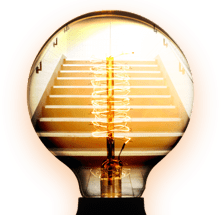Subscribe
Sign up for timely perspectives delivered to your inbox.

The stress and isolation of the pandemic has taken a serious toll on many people’s emotional well-being. Head of Knowledge Labs® Professional Development Michael Futterman outlines strategies for prioritizing mental health and explains how to share them with others.
Staying close to home and avoiding large crowds reduces the risk of being exposed to COVID-19 but also may come at an emotional cost to some. Increased feelings of anxiety and depression caused by the pandemic and the associated isolation may be compromising your mental health or that of the people you care about. That’s why it’s more important than ever to prioritize mental well-being and seize opportunities to discover new techniques for doing so.
The most important thing, of course, is to stay safe. Take the necessary precautions to protect yourself and the people in your life. Then consider the family members, clients, co-workers and neighbors who may need assistance during this time. Contact them to see if there’s anything you can do to ensure they are both physically and psychologically well.
Following are a few strategies to share – and consider employing yourself – to get through these challenging times.
During a crisis, our natural tendency is to function in survival mode, which often overrides any sense of purposeful direction. A flexible brain allows us to use our mental energy on things that move us in the direction we want to go. Rather than just go with the flow, a flexible brain can allow us to adapt as needed, changing our mindset to focus on what is most important. Being able to adjust our perspective to see things in a new, more positive way not only impacts our happiness but can also improve our performance and resilience. There are many strategies that can be used to train our brain to think more positively, including having a more optimistic perspective on life.
For example, journaling can be a therapeutic activity for those who may be too anxious to leave their home. Now is a great time to recommend this to clients – perhaps by suggesting they record their personal history for their children and grandchildren. Journaling can also include simply writing down things we’re grateful for or detailing negative experiences in order to reflect on positive outcomes. Providing the tools to initiate other at-home activities such as art supplies, word and jigsaw puzzles, or magazines and books, can also help encourage others to pass the time more productively.
FaceTime, Skype calls or other virtual visits with family members have proven invaluable for many during the pandemic. And thanks to these technologies, we can still maintain an active – yet distanced – social life and maintain the human contact we need to thrive.
Consider setting up a regular schedule for talking with children, grandchildren or multiple family members using a video conferencing tool such as Zoom. Just make sure everyone has a smartphone, laptop or tablet in their home and knows how to set up and use the app. If not, inquire if a caregiver can assist, or offer to train others on the technology.
A person clinging to a rock face trying to hang on is a scene that can evoke differing feelings in people. While some see a scary situation, others see excitement, exhilaration and accomplishment. Or picture a group of people crying outside a church: Some may interpret the scene as a funeral and others a wedding, depending on their perspective. Training our minds to expect more optimistic outcomes and taking a positive rather than negative view of situations can improve your brain’s flexibility.
You often hear about the meditative state that runners experience. Runners who claim to be “in the zone” may find the rhythmic nature of the running motion and the sounds of their steps hitting the pavement to be quite soothing – as long as they can keep their mind from wandering and getting caught up in past or future concerns.
When we focus our attention on something positive, we are better able to perform even complex tasks while in a calm state of mind. The following steps outline a meditative mental recovery process that can help recharge the brain just as effectively as the more passive techniques we usually imagine when we hear the word “relaxation.”
You should come back from this exercise centered in a way that allows you to focus on the points that matter most. Practice this technique once or twice a day if you can so it becomes more of your norm rather than an emergency brake. Good times to incorporate this exercise into your day are before breakfast and before dinner.
The isolation and profound lifestyle changes brought on by the pandemic have not been easy for anyone – even the most centered, successful or positive people – to navigate. But by making a concerted effort to maintain purpose, adapting to our temporarily distanced social life, staying positive and focusing our attention, we can make a difference in our own mental health – and help those we care about do the same.
Develop mind strength-training strategies for better brain health.
Learn More